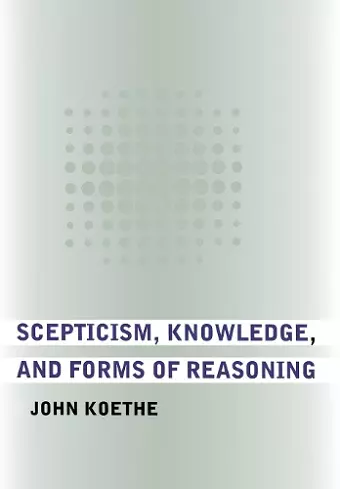Scepticism, Knowledge, and Forms of Reasoning
Format:Hardback
Publisher:Cornell University Press
Published:12th Dec '05
Currently unavailable, and unfortunately no date known when it will be back

"The problem of philosophical scepticism is not so much what to say about the view itself (there being a consensus that it should be rejected), but rather what to say about the arguments that purport to yield it. And since these arguments involve claims and principles concerning notions like knowledge and possibility, it is difficult to see how to explore the arguments without exploring these notions too."—from the Introduction
How do we address philosophical arguments whose conclusions contradict our commonsense knowledge? For example: a logically impeccable argument that concludes that you cannot know that you are at this very moment reading a description of a book of philosophy. That is the problem of philosophical scepticism.
Scepticism, Knowledge, and Forms of Reasoning is an attempt to resolve how best to respond to such vexing arguments, a matter on which there is no consensus among contemporary philosophers. Rather than denying the premises of such arguments or simply declaring them invalid, John Koethe delves into what such arguments reveal about the nature of reasoning itself. He suggests that there is nothing straightforwardly wrong with sceptical arguments, and that in recognizing this while at the same time honoring our commonsense convictions about knowledge, we confront profound questions about the very nature of reasoning.
This elegant book develops a novel response to a kind of skeptical argument that has received considerable attention over the past thirty years or so. Koethe critically considers the principal responses to the argument, and in the course of developing his proposal, puts forward intriguing (and sometimes radical) ideas on a broad range of topics, including logical validity, epistemological realism, and the concept of knowledge. The book is highly stimulating and rewarding, and it is also a pleasure to read. All philosophers interested in epistemology—novices and experts alike—will benefit from reading this book.
* Notre Dame Philosophical RevieISBN: 9780801444326
Dimensions: 229mm x 152mm x 21mm
Weight: 454g
176 pages